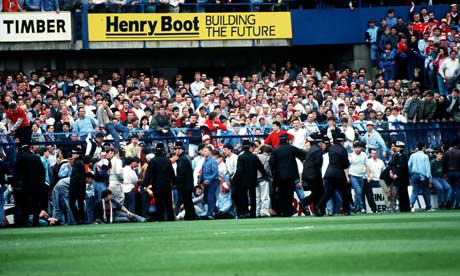|
 |
|
The Hillsborough disaster.
Whites Press Agency, which provided the most
controversial stories to the Sun, said its
reports on the tragedy were based on the
claims of four senior police officers.
Photograph: Stewart Kendall/Sportsphoto |
Lord Justice Taylor's Hillsborough inquiry (mostly) relied on what
the police told him. When Kelvin MacKenzie's Sun
lashed the Liverpool fans, he (completely) relied on
police say-so too – and now offers "profuse
apologies".
When the Press Complaints Commission pushed aside Guardian evidence
on phone-hacking, it did so because the police said
there was nothing new here. When the press raised
brutal questions about the McCanns, they echoed
Portugal's police. And Christopher Jefferies, the
teacher falsely pursued for the murder of Joanna
Yeates? Another duff police tip, averred the (then)
editor of the Daily Mirror.
There's a simple moral here, for journalists and judges alike.:
base no sweeping assertions, no headlines, no
resounding conclusions, on what the police hint,
suggest, appear to conclude or sometimes testify.
Wait for a court verdict based on proper rules of
evidence.
Dame Elizabeth Filkin's conclusion post-hacking – that police
should henceforth keep a prudent, formal distance
from media contacts – may still be sensible enough.
But not to keep the police safe – more the other way
round.


